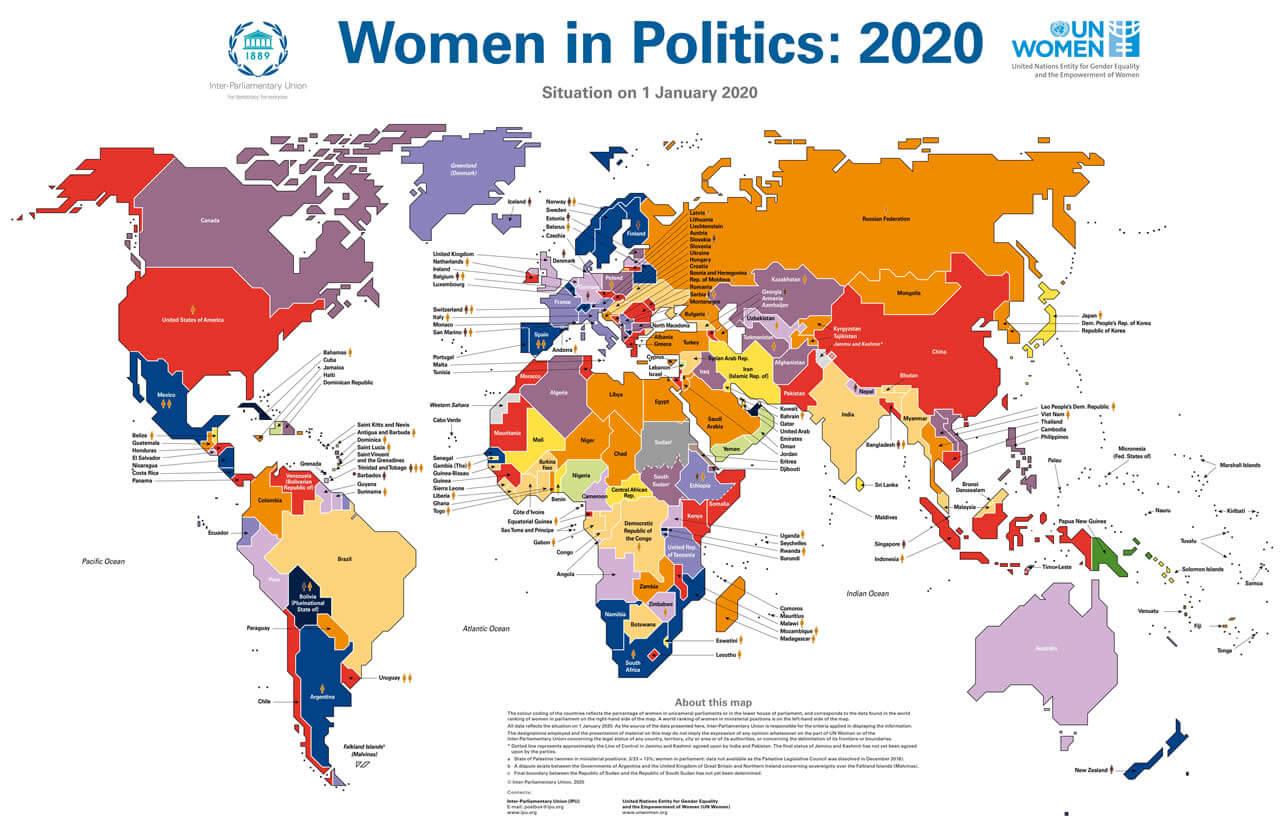Parliaments and local governance
The percentage of women in national legislatures has become a standard measure of a country’s achievements in women’s political participation. Globally, the average has inched upward, but is still far from reflecting women’s share in society; disparities are also wide among local government bodies. The discrepancy directly infringes on women’s political rights, and can restrict rights in other areas, given the central role that national legislatures and local bodies have in formulating, implementing, and monitoring laws and budgets.
Our solutions
UN Women advocates for parliaments to increase the number of women leaders and representatives. We call for laws and budgets to promote gender equality, while helping legislators gain new knowledge of the value of gender equality and skills to advance it. Our strategies comprise policy dialogues to inform legislative agendas; in some countries, we bring together women leaders from across the political spectrum to jointly lobby for common gender-related priorities.
Global partnerships, such as with the Inter-Parliamentary Union, are important to deepening collaboration with key parliamentary leaders and tailoring our work to the particularities of different legislatures.
Through its Fund for Gender Equality, in El Salvador UN Women helped mobilize women from 22 advocacy groups, Parliament and the Supreme Court of Justice around a law making public institutions more gender-responsive. It passed, mandating the integration of gender-specific considerations in all public policies, among other measures. The success of the Parliamentary Women’s Group in advocating the bill’s passage led to official recognition, entitling it to representation on all legislative commissions, and making it the first parliamentary group to operate across party lines. Fund support for the SUMA Initiative in the state of Michoacán, Mexico, helped it boost the number of women in municipal governments from 5 per cent to 12 per cent, while improving the leadership skills of thousands of women.
In Moldova, the percentage of women district councillors and mayors remains under 20 per cent—not generally enough for making political agendas work for women. Since there is strength in numbers, UN Women in partnership with UNDP encouraged women public officials to come together and establish the Women’s Network of Mayors and Local Councillors as part of the Congress of Local Authorities from Moldova, the country’s largest association of local public authorities.
The network first turned its attention to “engendering” the Congress, which subsequently included gender equality in its charter as a strategic priority. It significantly increased its 2012 budget to facilitate the work of women mayors and councillors, allocating funds for a full-time network coordinator, regular meetings, media outreach and study visits so women leaders can learn from each other.
Latest news
-
Women in Politics Map: 2020
Created by the Inter-Parliamentary Union (IPU) and UN Women, the map presents global rankings for women in executive, government, and parliamentary positions as of 1 January 2020.
